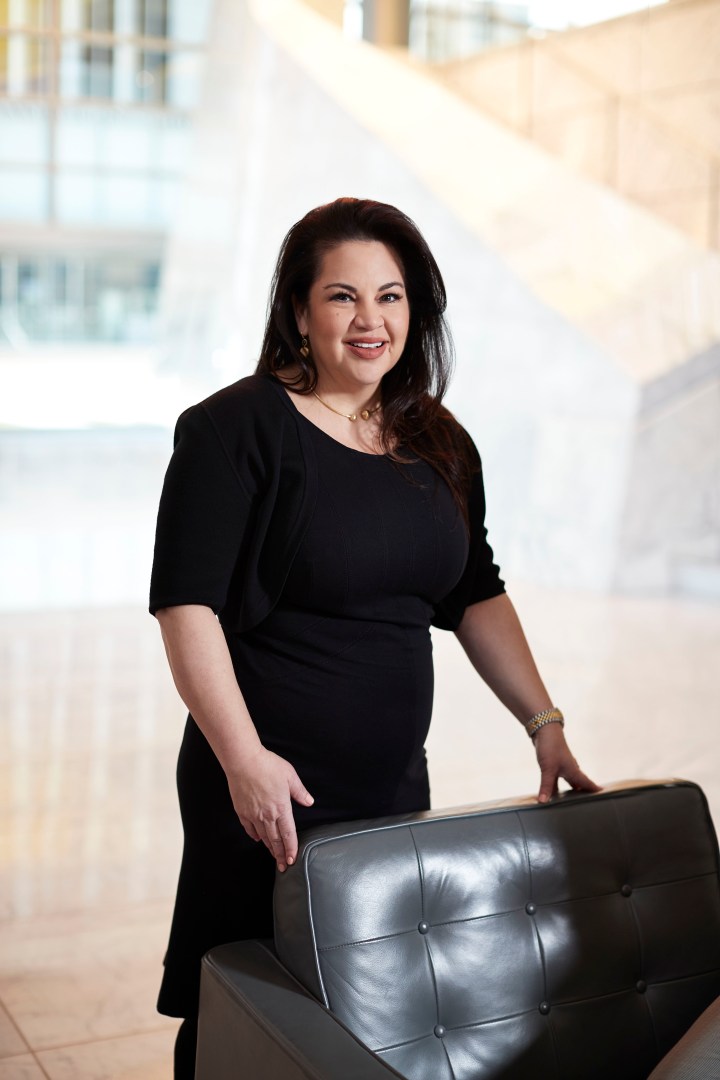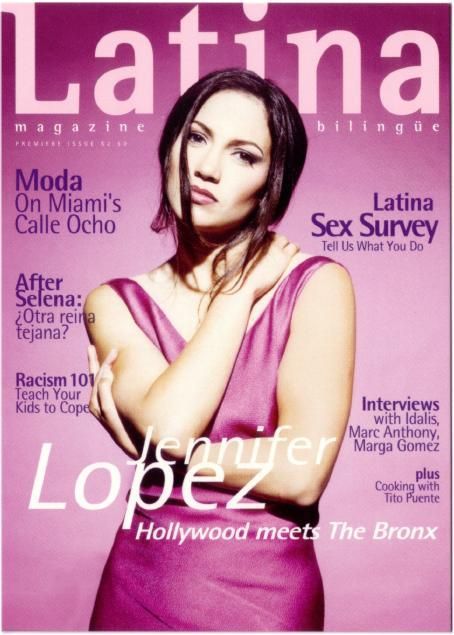
How the founder of Latina magazine is diversifying Hollywood
How the founder of Latina magazine is diversifying Hollywood

Hollywood is putting more effort than ever before into increasing diversity on and off screen. But there’s still a long way to go. Back in 1996, Christy Haubegger saw a similar problem in the magazine world — there were no American magazines that targeted a Latina audience or that had Latinas on the cover.
So she founded Latina magazine, an English-language beauty, fashion and entertainment magazine for bilingual, bicultural Hispanic women. These days, Haubegger is head of multicultural business development at Creative Artists Agency, one of Hollywood’s top talent and literary brokers, where her job and mission is to diversify Hollywood on and off screen.
The following is an edited transcript of Haubegger’s conversation with host Kai Ryssdal.
Kai Ryssdal: So you have been in, I guess you could say, the business of getting this society, but also Hollywood, more multicultural for a long time now, right? Fifteen years at CAA and 20 years or so since you founded Latina magazine. How are we doing?
Christy Haubegger: Well, you know, it’s interesting. I think that if you’d told me in 1996 when we launched Latina that 20 years from now you’re going to be having the same conversation, I would have said “Oh, there’s no way people are going to totally get it by then.” Like when the 1990 census came out there was a Time magazine cover that said, “Oh, this is going to be the decade of the Hispanic,” which I think apparently got rescheduled, maybe twice. And so I’ve sort of been through this a few times, but I’m inspired, and I see progress, and we can’t fall off the floor, so we’re not going backwards.
Ryssdal: Are we having a better conversation though? I mean, 20 years ago you put Jennifer Lopez on the cover of the first Latina magazine. Now she’s, you know, a multimegastar and she’s doing great. But is the overall conversation better?

Haubegger: Well, I think the overall conversation is better. I think it’s complicated because, you know, we’ve got a political moment that often demonizes our population and has made it a political opportunity out of doing so, and I think that that erodes the credibility of the “this is a valuable audience and this is a valuable marketplace,” and all of those things tear at the fabric of not only who we are, but how we think of one another. And so I think it’s a back and forth still.
Ryssdal: You go to law school, you found Latina magazine and then you wound up somehow in Hollywood. How did that happen?
Haubegger: Well, I think there’s your work and then there’s your life’s work. I went into the magazine business, not because I wanted to be in the magazine business, but because I wanted to tell stories and to see our faces, and think that our lives are as valid as anyone else’s who was on a magazine cover, and we’d never been on magazine covers. And so I was motivated by a sense of I wanted to correct that and be included. And I think that my move into entertainment, you know, producing a movie like “Spanglish,” was similarly motivated. It wasn’t because I just wanted to be in the movie business or I’m at CAA because I want to be in the entertainment business, but because I actually see an opportunity that aligns with my personal sense of mission.
Ryssdal: When you got to CAA in 2005, based on a little research I did about your time there, they apparently came to you and said, “You have to execute on a multicultural strategy.” And they said, “You’ll figure out what that is.” Have you figured it out yet?
Haubegger: I’ve almost got it. I’m almost there. No, I think when we were first starting out, I think the idea was like, we need to change the composition of the roster. And one of the most important things about doing this is actually changing the composition of who is in the industry, who’s making the decisions, who’s choosing to represent folks. And I think, you know, we needed to think about the entire ecosystem of the industry and changing the complexion of that. And we’ve been making real strides. I mean, we’re not there by any means, but boy, it’s a lot better than it was.
Ryssdal: OK, so look, there is the moral imperative of what you’re doing, right? Just basic justice in this economy. Hollywood is, if nothing else, a very bottom-line business. So when you go and you have these conversations with the white guys running the meetings, at which probably you are the only Latina or female or person of color, frankly, are your heard?
Haubegger: I think that yes, absolutely. And I think, you know, when there are things like “Black Panther” or “Crazy Rich Asians” — the thing that I share with people all the time — and I am the only one in the room, and I’m lonely because I’d like there to be a lot more of us in the room. But being able to show people that when you have a movie like “Crazy Rich Asians,” yes, overwhelmingly the Asian-American audience showed up, but they’re only 6% of the population. They were 36% of the ticket buyers. The thing that I share with people over and over is that 64% of the people who went to see that movie are not Asian American. They are people who love a rom-com. And so, you know, when you have 495 shows on television, and you have every media consumption option in the world available to you, you have to show things that we haven’t seen before if you’re going to attract an audience. And so, yes, I’m motivated by a personal sense of mission about changing who has access to tell stories. But the reason that it’s sustainable and scalable is that it’s actually a great opportunity for our business and a great business success.
There’s a lot happening in the world. Through it all, Marketplace is here for you.
You rely on Marketplace to break down the world’s events and tell you how it affects you in a fact-based, approachable way. We rely on your financial support to keep making that possible.
Your donation today powers the independent journalism that you rely on. For just $5/month, you can help sustain Marketplace so we can keep reporting on the things that matter to you.


















